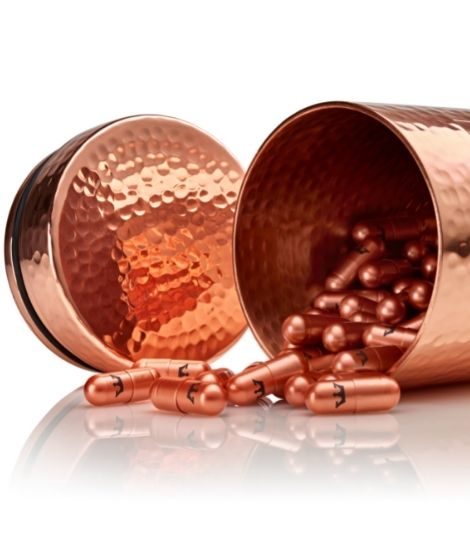The Feelgood Menopause is a Noon editorial project, edited by Eleanor Mills, written by award-winning health journalist Jo Waters and brought to you by LYMA, a company which is redefining the wellness industry with a unique combination of science, nature and technology. The LYMA Supplement includes nine peer-reviewed ingredients in one formula. (Find out more about LYMA supplements and what they can do for you.)
Part 4: Psychological fallout from menopause
Pharmacy and health food stores are groaning with vitamins, minerals, and herbal remedies which claim to ease symptoms of perimenopause and menopause, and improve post menopause health. But do they work? And are they even safe?
Herbal remedies for menopause
Many women report that supplements provide great support during menopause, for some they make little difference. There’s black cohosh, sage, red clover and evening primrose oil for hot flushes, ashwagandha and saffron for insomnia, rhodiola rosea, passionflower and saffron for anxiety, and St John’s Wort (and saffron, again) for depression. They come in tablets, tinctures and tisanes, and many have been used as traditional remedies for centuries.
Valerian has been used since Roman times for insomnia, saffron has been a staple for depression and anxiety since the 10th century and sage has a long reputation for enhancing memory and alleviating hot flushes. Some of these have solid clinical research behind them and clearly do work.
But how can you find the good stuff? With many herbals there’s no guarantee about what ingredients are actually in the pack, or what dose. A few products contain actives which are standardised and validated to work as a medicine; but the majority are little more than uncharacterised plant dust.
What should you know about menopause supplements?
This is why the NICE Guideline on Menopause is so cautious about herbal remedies. They recommend quite rightly that doctors should explain to women that “the quality, purity and constituents are unknown”. But the reality is that the majority of doctors are not trained in supplements, so aren’t able to recommend an optimal protocol to help women navigate menopause, with or without HRT.
“People tend to think of herbal remedies as being a ‘harmless’ alternative to HRT because they are perceived as natural, but any substance that has an effect can also have negative side effects,” says Professor Gunter Kuhnle, professor of Nutrition and Food Science at Reading University. “One of the biggest concerns is about the quality and strength of ingredients: legally they are food supplements and not medicines, so they are not subject to the same regulation, scrutiny and legal control as drugs.” This might mean that there’s more or less of an ingredient in a supplement than needed, for instance, there may have been other substances added, or it may have deteriorated in efficacy since bottled.
Some supplements, such as St John’s Wort for instance, can also interact with prescription drugs such as the contraceptive pill and antidepressants. Too much soya can affect thyroid medication too. It’s important to be aware of these things before you buy supplements – there is so little regulation of products.” The take home message is that just because something is plant based, it doesn’t mean you should assume it’s safe,” says Professor Kuhnle. He advises choosing products which make assurances about the quality of their ingredients. Shockingly companies are not legally obliged to do this. A quick shortcut is to look for patented ingredients – generally if something is patented it has time, money and clinical trials invested in it.
Another tip to look out for is the THR (Traditional Herbal Registration) logo on the pack. This means the product has been approved by the Medicines and Healthcare products Regulatory Agency, has the correct dosage of the right ingredients, and meets current safety criteria. However, the MHRA’s THR scheme does not assess effectiveness and some of its information is out of date.
What herbs help with hot flushes?
A number of herbal remedies are marketed for the relief of menopausal hot flushes and night sweats, but what does the science say about them?
- Black Cohosh: Black cohosh is a popular herbal remedy for hot flushes and has been used for centuries by native Americans. The way it works isn’t fully understood but it’s thought to act on neurotransmitters (brain chemicals) and inflammatory pathways. It is not unanimously favoured: a review of 16 studies of 2,000 women in 2012 by the Cochrane Centre found there’s insufficient evidence on the safety and effectiveness of the traditional remedy in relieving menopause symptoms. However, the reviewers did conclude it was a supplement worthy of further investigation. A small study from 2012 on 80 postmenopausal women (average age 53) found that both black cohosh and evening primrose oil supplements lessened the severity of hot flushes, but only black cohosh reduced their frequency. Black cohosh has side effects including stomach pain, vomiting and skin rashes, and there have been rare reports of severe liver damage, which led the Medicines and Healthcare products Regulatory Agency (MHRA) to state all black cohosh products should carry a warning. It is not recommended for women with breast cancer.
- Fenugreek: Selected strains of fenugreek contain fenusides, compounds which look very like oestrogen. They are not phytoestrogens, but they do have the ability to displace oestrogen from binding sites in the blood and thus gently raise levels of the natural hormone. This is new science; there are at least 15 studies in the medical databases, several of which show clear improvement of menopausal symptoms. Not all fenugreek is equal, however: Libifem is a brand with a unique standardised extract, a propriety matrix of furostanolsaponin glycosides which provide this unique support to the body, effective at 600mg daily.
- Sage: This herb was traditionally used for boosting memory, but a 2019 study on 30 post-menopausal women showed that it might have wider applications in menopause. The study showed a significant difference in the severity of hot flushes, night sweats, panic and fatigue and concentration before and after taking sage extract supplements at a dose of 100mg for four weeks. Sibelius is a brand with built in bioavailability.
Herbs for stress and anxiety
- Ashwagandha: Ashwagandha root extract has been used in Ayuverdic medicine (an ancient Indian system which is natural and holistic) for 4,000 years as a tonic. It is an adaptogen, a herb that helps the body cope better with stress, and is said to help with sleep. A randomised controlled trial (where a treatment group is compared to a group receiving a placebo) published in the Indian Journal of Psychological Medicine found that in a group of 64 people with a history of chronic stress, those who took a high dose (2 x 300mg capsules) of ashwagandha extract daily had significant reductions on all stress assessment scales, compared to those given a placebo. Levels of the stress hormone cortisol were also reduced. LYMA uses a patented extract of ashwagandha, at a proven daily dose of 600mg.
- Rhodiola Rosea: Rhodiola has been used for centuries to promote stamina and stave off mental and physical fatigue. It’s great if you’ve got lots on and need to push through – so much so that even the Vikings loved it, apparently. However, a review of 11 studies in 2012 concluded that current evidence for rhodiola’s effectiveness was inconclusive, and said more randomised controlled trials (RCTs) were needed.
- Passionflower: Passiflora has been used in herbal medicine for centuries; the Aztecs were fans of this one. It’s believed to work on GABA receptors in the body (GABA is a neurotransmitter than can calm the nervus system.) A review of 11 clinical trials found it had a tendency to reduce anxiety levels.
- Saffron: The first references to saffron’s anti-anxiety and anti-depressant actions are in Avicvenna’s great Canon of Medicine, completed in 1025 and a staple medical text for 800 years. In the last 20 years over 40 clinical trials have demonstrated its anti-depressant and anxiolytic effects, with numerous meta-analyses confirming efficacy similar to drug treatments. Avicenna, it seems, was on the money. Crucially, one of the recent trials showed that saffron improved mood and reduced anxiety in peri-menopausal women (https://pubmed.ncbi.nlm.nih.gov/34463070/). LYMA uses a patented formula of saffron extract, dosed at 28mg; optimal for max efficacy.
- Lavender capsules: Lavender oil (ie Silexan, a capsule sold in pharmacies) has been found to relieve symptoms of anxiety, with effects comparable to drug treatments such as benzodiazepines, but without addiction problems. A review of studies published in 2019 confirmed these benefits.
Herbs for inflammation and pain
- Turmeric: This review concluded that ‘Curcumin has received worldwide attention for its multiple health benefits, which appear to act primarily through its anti-oxidant and anti-inflammatory mechanisms.’ Research suggests that curcumin can help in the management of oxidative and inflammatory conditions, metabolic syndrome, arthritis, anxiety, and hyperlipidemia. It may also help in the management of exercise-induced inflammation and muscle soreness, thus enhancing recovery and subsequent performance in active people. In addition, a relatively low dose can provide health benefits for people that do not have diagnosed health conditions.’ The issue is that in its organic form, turmeric extract is a placebo as it’s not absorbed by the body. Many of the water-soluble turmeric extracts are also ineffective as the majority of the ingredient is made up of the carrier system to make it water soluble, leaving neglible space for the beneficial curcuminoids. HydroCurc is a patented form of turmeric that is 100% water soluble, and its carrier system only accounts for 15% of the total ingredient, leaving adequate room for the curcuminoids. Look for a daily dosage of 600mg which is proven to be physiologically beneficial, anything less is substandard. LYMA, it should be noted, includes a 600mg dose of HydroCurc.
- Levagen®+: This is an odd one out. A PEA protein, or Palmitoylethanolamide (PEA), it is an endogenous fatty acid amide produced naturally in the body in response to injury and stress. Found in lipid extracts of foods and plants such as egg yolk, peanuts and soybeans, as well as produced naturally in the body, has the invaluable role of modulating and alleviating pain. There are over a hundred papers on this molecule, which combines effective analgesia with a soothing effect rather similar to CBD. This is unsurprising since it works via some of the same pathways. Great for menopausal and menstrual pain, but for many other types of pain too. We like the brand Levagen®+ as it’s a superior form of PEA with increased bioavailability thanks to the award-winning LipiSperse® technology. Due to its fatty nature, PEA normally has a poor absorption in the body.
Herbs for sleep
People assume sleep related supplements are just weak sleeping pills, but sleep has its fingers in every system. By strengthening the immune system, improving blood flow or supporting energy balance, you can impact the sleep system indirectly and improve it. Some of the remedies above may also improve sleep by reducing anxiety. Sleep is a universal process that the whole body uses and there are many different pathways to improving the quality of sleep, and you need to recognise that when your body is in night mode, that it’s time to regenerate to make the body’s nocturnal processes even more effective. That’s where the future of the sleep is.
Saffron: Affron, the standardized saffron extract, has well documented anxiolytic properties and improves the natural production of the sleep-regulating hormone melatonin. In line with saffron’s traditional use as a calming mood-booster, recent studies show that these compounds help support a normal inflammatory response, reduce levels of the stress hormone cortisol and can help balance levels of important mood and sleep regulating brain chemicals like serotonin, dopamine and glutamate. Saffon is well tolerated, and doesn’t cause sluggishness or adverse effects, making it a natural alternative that doesn’t carry the same chance of daytime tiredness or sleepiness that other sedative based sleep supplements can do. LYMA also includes an optimal dose of Affron.
Supplements to help you sleep
Commonly used remedies for sleep include:
- Valerian: Valerian has sedative and hypnotic properties. A 2020 review of 60 studies concluded it could be a safe and effective in promoting sleep, and had no adverse side effects. Long term use, however, is not recommended.
- Melatonin: The ‘dark’ hormone, it is produced by the body’s pineal gland as night falls to promote sleep. According to the Sleep Foundation, research has shown melatonin supplements may be a helpful sleep aid. Oral supplementation, however, is dogged by problems of low bioavailability. In the UK melatonin, sold as a drug Circadin, is available on GP prescription.
Added Vitamins and Minerals
- Vitamin D: Not really a vitamin at all because the body can make it itself, but to do so it needs sunshine, something in short supply in the UK. It’s needed for heathy bones and numerous other functions including immunity and normal sleep. The Department of Health recommends anyone aged four or over should take a 10mcg supplement during the autumn and winter, when exposure to sunlight is insufficient to make enough vitamin D.
- Magnesium: This mineral has been found to regulate cellular time keeping, and is thought to be beneficial for maintaining normal sleep patterns. One study found supplementing with magnesium, melatonin and zinc improved sleep quality and morning alertness in older people. The Department of Health recommends women aged 19-64 take 270 mg of magnesium a day. Doses as low as 400 mg a day cause diarrhoea, so be careful.
Take-away
Many supplements don’t work because they don’t contain enough of the right compounds, or because they are in a form that the body cannot absorb.
The law – which lags behind the science by a good half-century – prevents herbal supplements from making any health claims at all. In the absence of any guidelines, the only way you can check if something works, is to research it yourself. Go to pubmed or GoogleScholar, type in the patented name and check out the clinical trial(s) yourself. If an extract is patented, that is generally a good thing because it means that the extract was worth studying and developing. The clinical trials will also tell you what dosage was used, and what doses work. Sometimes they tell you what didn’t work too, which is just as important.
health
View All
‘Menopause happens to half the population, so why do I feel so at sea?’
What are perimenopause and menopause really like for women, and how can we make them better?

Hormone Hell: two perimenopausal ladies on a canal boat…
In this extract from Rosie Wilby’s ‘The Breakup Monologues,’ an enjoyable trip goes awry…



